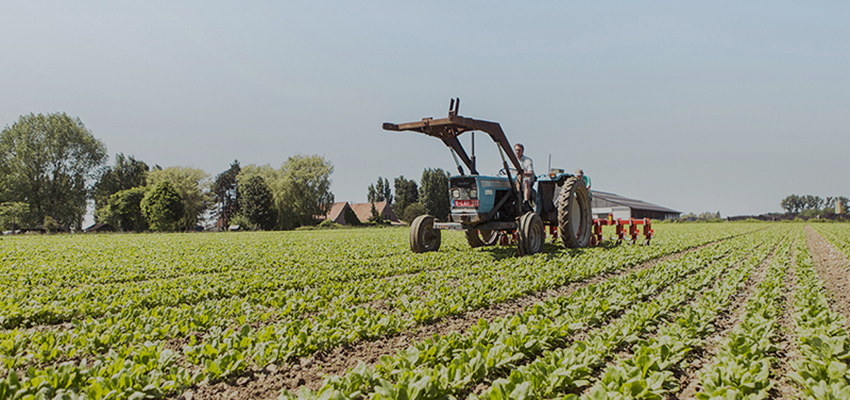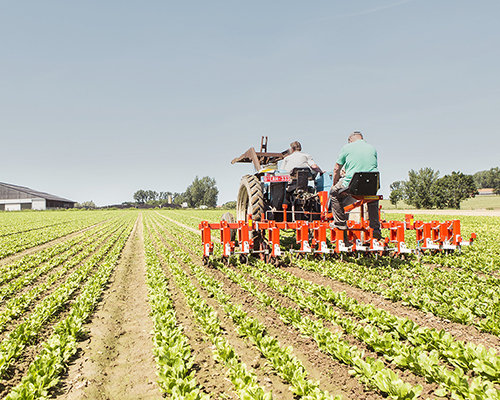The differences between organic and conventional farming are clear: no sprays or pesticides are used in organic farming at all, not even to get rid of weeds. This of course explains the price difference between organic vegetables and conventionally grown ones. Weeding on organic grounds is done manually. Not once, but several times. And yes, that process is time-consuming. Moreover, both Hugo and Kristof have developed their own ways to enrich the soil, which doesn’t involve ploughing, but just a light spading to oxygenise the top soil. “Each layer of soil has its own specific properties and bacteria. Ploughing disturbs this delicate ecosystem. We are able to maintain the organic power of the soil, and allow it to breat”, explains Kristof, who regards Hugo as his mentor.



